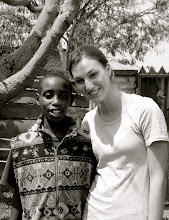"It has often been said that everyone dances in Africa, and that Africa is the festival continent. In fact, an African proverb says that if you can talk, you can sing. And if you can walk, you can dance."
-Paul Kagame
Regina talked about music in one of her recent postings on our Globemed blog. This is a topic I wanted to discuss further based on its historical importance in Rwandan culture.
Whenever someone even mentions the words “Africa” and “Culture,” chances are music is bound to come up in discussion. But why? Why has music developed the way it has here? What significance lies beneath the surface of beautiful melodies and rhythmic movements?
These are incredibly broad questions that I cannot answer, but I will share with you some of the experiences I’ve had with music here and the observations I have made.
I’ve had the pleasure of experiencing traditional Rwandan singing and dancing on several occasions. I’ve also seen several Rwandans engaging in Western style dancing. When I juxtapose these two images I realize that, although they look very different, the effect is more or less the same. Song and dance serves as a way for Rwandans to acknowledge their cultural roots and also connect with a changing world. Music is multifaceted and incredibly powerful here, especially considering its capacity to connect traditional and modern culture.
I think for me, music has also been about cultural exchange. For example, at the orphanage this past weekend, the children used music to greet us while simultaneously expressing and sharing a part of their culture. It was so interesting to see the kids who initially appeared so shy, expressing their personality through extravagant dance and singing at the top of their lungs. Afterwards, we were caught off guard when they asked us to sing for them and I thought to myself there was no way I could match the passion they displayed to us through their songs. Despite the fact that our singing was quite amateurish in comparison, it seemed as if they genuinely appreciated our gesture.
The most amazing aspect of music is its ability to bring people together. I feel that this especially applies to Rwanda based on its turbulent past. When people talk of Rwanda in the U.S, they tend to focus on the genocide and assume that a nation that experienced that type of chaos could never actually recover and rebuild itself in only fifteen years. This was the point of view I adapted because it was the only opinion I had really ever heard. Being here, my impressions completely changed. There are no visible signs of ethnic tension that I’ve witnessed and for the most part, the scars of hatred and violence have disappeared. Obviously, this is not a byproduct of music, but I just think it’s interesting that music could be incorporated in this healing process by connecting people of different ethnic groups to one common ancestry and cultural history.
Looking beyond this miraculous unity that has formed in a country where ethnic tensions had been building since before independence, Rwanda still has a large number of problems. Extreme poverty is probably the most visible problem in Butare. Every time I walk into the town I see women crawling on the ground, too malnourished to walk, young boys with no shoes begging for money, people with multiple amputations who are staring out into the distance, lost in their suffering. It’s very difficult to see and I wish I could do more than just offer them spare change or a banana to eat. With the amount of international aid that is being funneled into developing Rwanda, it is hard to believe that poverty on this scale still exists.
Subscribe to:
Post Comments (Atom)

No comments:
Post a Comment